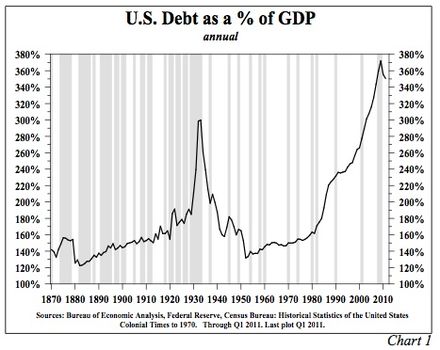- Joined
- Jun 3, 2009
- Messages
- 30,870
- Reaction score
- 4,246
- Gender
- Male
- Political Leaning
- Very Conservative
In theory, you can start a bank with nothing, just a ledger, and it all works just fine as long as borrowers don't default. You can even manage interbank settlement just by creating settlement accounts between banks.
In reality, you need some (hard) assets to start a bank. And in the U.S., you need reserves to get started, because reserves are what banks use for settlement. Those hard assets are what is at risk when borrowers default, because as soon as you get your loan, and before you ever make a payment, your bank transfers reserves in settlement of your check. If you default, your bank loses those real assets.
FDIC is just insurance that all banks have to kick in to. The real (moral) problem is when the government increases its own liabilities in order to decrease the bank's liabilities. Which doesn't really happen. It didn't even happen in 2008. But it could.
Sure, but this isn't something that normally happens a year or two after the founding. I mean, I guess if you're reinvesting everything foolishly then it's a risk, but I'd be crazy to deny that people get massive wealth through banking.



